Tips for Improving Your Credit Score Quickly
If you’re looking for ways to improve your credit score quickly, the best place to start is by paying off as much debt as possible. Paying off debt is one of the most effective ways to quickly boost your credit score and make your financial future more secure. Not only does paying off debt help you get back on track financially, it also helps you to build a better credit score.
In the short term, paying off debt can provide the most immediate benefit to your credit score. Paying off debt can help reduce your credit utilization ratio, which is the amount of debt you owe compared to your total credit limit. This ratio is one of the key factors that determine your credit score, so reducing your debt can have a significant positive effect.
In addition to reducing your credit utilization ratio, paying off debt can also help you build a positive payment history. Paying your debt on time is one of the most important factors in determining your credit score. Making regular payments on your debt is an important step in building a strong payment history, which will help you improve your credit score.
Another advantage of paying off debt is that it can help you create a positive relationship with lenders. Paying off debt on time and in full demonstrates that you are capable of managing your finances responsibly. This can lead to more favorable terms when it comes to future loans and credit applications.
Finally, paying off debt can lead to improved financial stability. By reducing the amount of debt you owe, you can free up more money that can be used for other purposes. This can help you save for the future, build an emergency fund, or invest in new opportunities.
If you’re looking to quickly improve your credit score, paying off debt is one of the best ways to do it. Not only does it immediately reduce your credit utilization ratio, it also helps you build a positive payment history and create a good relationship with lenders. And in the long run, it can help you achieve greater financial stability and security.
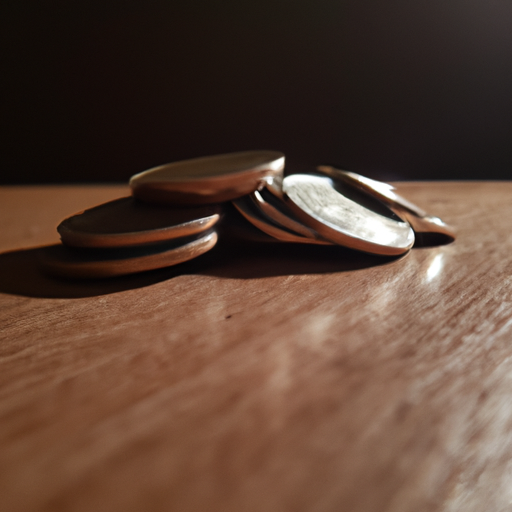
The Power of Good Credit
With the current economy, good credit is more important than ever. Good credit can open doors to better job opportunities, lower interest rates, and more advantageous financial products. It can also be a pathway to financial freedom and security.
Having good credit can be empowering. It can provide a sense of control and freedom. Being able to make financial decisions and knowing that you have the capacity to make those decisions is an important part of financial success. Good credit can also provide a sense of security, knowing that you have the potential to access credit when needed.
Paying off debt and building your credit is the best way to improve your credit score. Paying off debt is important because it reduces the amount of money you owe. This reduces the amount of interest you have to pay and improves your credit score. When you pay off debt, you also improve your debt-to-income ratio. This is an important factor in determining your credit score.
Building your credit is also important. Having a good credit score will make it easier to access credit when needed. You can do this by opening a credit card or taking out a loan. When you use these products responsibly, you will build a positive credit history. This will lead to a better credit score and more access to better financial products.
Paying off debt and building your credit is also important for long-term financial success. When you have a good credit score, you can access better financial products, such as lower interest rates on mortgages or auto loans. This will save you money in the long run.
Paying off debt and building your credit can also give you peace of mind. When you have a good credit score, you can feel confident in your financial future. You have the potential to access credit when needed and you have the potential to access better financial products.
Good credit is more important than ever in today’s economy. Paying off debt and building your credit can help you access better job opportunities, access lower interest rates, and access better financial products. It can also give you a sense of control and freedom, as well as a sense of security. When you have a good credit score, you can have peace of mind knowing that you have the potential to access credit when needed and access better financial products. With the right financial planning and discipline, you can use the power of good credit to your advantage.
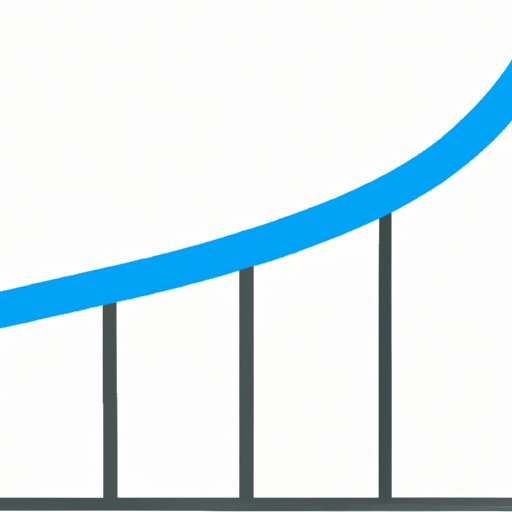
The Advantages of Paying Down Debt
Paying down debt is one of the most powerful tools to build up your credit score and improve your financial situation. It can be intimidating and overwhelming to tackle debt, but there are several advantages to doing so that make it worth the effort.
First, paying down debt can help you save money. Every time you make a payment on your debt, you are reducing the amount of interest that you must pay on the remaining balance. This can add up to a significant amount of money over the course of the loan. Additionally, if you can pay off your debt faster, you can avoid additional late fees and penalties that can add to the amount of interest that you owe.
Second, paying off debt can help improve your credit score. When you make on-time payments and pay off debt, it shows potential lenders that you are a responsible borrower. This can help you get better interest rates and terms when applying for credit in the future. As your credit score improves, you may also qualify for new credit cards or other types of loans that can help you achieve your financial goals.
Third, paying down debt can help improve your financial security. When you have a high debt-to-income ratio, it can be difficult to get approved for loans or other types of financing. By paying down your debt, you can reduce your debt-to-income ratio, which can make it easier to get approved for financing in the future. Additionally, having a lower debt-to-income ratio can help you get better interest rates and terms on loans.
Fourth, paying down debt can help you achieve your financial goals. When you have a large amount of debt, it can be difficult to save money for retirement or other long-term goals. By paying down your debt, you can free up more of your income to save for future goals. Additionally, having a lower debt-to-income ratio can make it easier to get approved for financing for large expenses, such as a home or car.
Finally, paying down debt can help you reduce stress. Carrying a large amount of debt can be a major source of stress in your life. Paying off debt can help reduce this stress by giving you peace of mind that you are taking steps to improve your financial situation.
Overall, there are numerous advantages to paying down debt and building your credit. It can help you save money, improve your credit score, and achieve your financial goals. Additionally, it can help reduce stress and provide peace of mind. Investing in your financial future by paying off debt is a smart decision that will pay off in the long run.
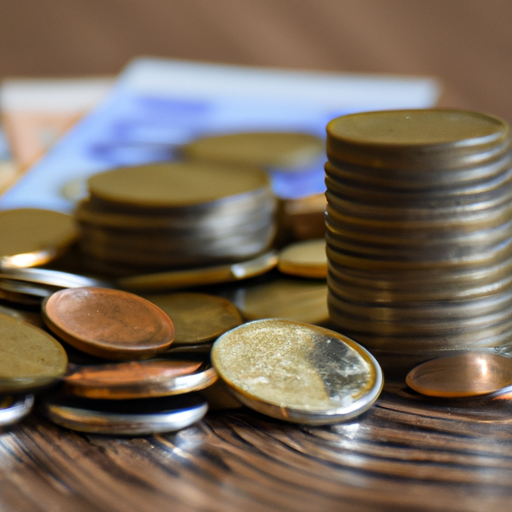
Increasing Your Credit Utilization
Paying off debt and building your credit are two of the most important steps you can take to improve your financial health. Having good credit can open up doors and provide financial opportunities that are otherwise inaccessible. One of the most effective ways to increase your credit utilization is to pay off your debt. This can help you improve your credit score, build better financial habits, and save money in the long run.
When you pay off your debt, it allows you to start fresh. This is important because it gives you more money to put toward other financial goals. It also helps improve your credit utilization, which is the amount of debt you have relative to your available credit. Your credit utilization ratio is one of the most important factors used to determine your credit score. The lower your credit utilization ratio, the better your credit score.
Paying off debt can also help you establish better financial habits. It allows you to create a budget and stick to it, which is the best way to stay on top of your finances. When you make a budget, you’re more likely to stay within your means and avoid taking on unnecessary debt. Additionally, being able to pay your bills on time is a great way to build a good credit history.
In addition to improving your credit utilization, paying off debt can also help you save money. When you have debt, you’re paying interest on the money you owe. Paying off debt can help you avoid interest charges and reduce your overall monthly expenses. This can help you create a more secure financial future.
When it comes to increasing your credit utilization, paying off debt and building your credit are two of the best ways to do so. Paying off debt can help improve your credit score, help you establish better financial habits, and save money. It’s important to stay disciplined and create a budget to help you keep your debt under control and work toward building a better credit score. With a little bit of effort and dedication, you can make the most of your financial future.

The Benefits of a Good Credit History
When you think about building your credit and paying off debt, it’s easy to think of only the short-term benefits. But having a good credit history is more than just a way to secure a loan or keep track of your financial accounts. It’s also a tool that can give you the power to make bigger, better purchases in the future.
The benefits of having a good credit history are clear. When lenders look at your credit score, they’ll be more likely to approve your loan. Your score also helps determine the interest rate you’ll pay on your loan. With a good credit history, you can get better interest rates and save money over the life of your loan.
Besides offering you more attractive loan terms, having a good credit history can also help you get better deals on other things. Insurance companies use your credit score to determine your rates. If your score is good, you’ll get better rates on your car insurance and home insurance.
In the long run, having a good credit history can also have a positive impact on your career. Employers often look at your credit report before making a hiring decision. If your credit history shows that you’re responsible with your finances, you’ll be in a better position to land the job you want.
Finally, having a good credit history can give you a sense of financial security. When you’re in control of your finances, you can be confident that you’ll be able to make important purchases and pay off your debts. You’ll also have peace of mind knowing that you’ll have the financial stability to face any unexpected expenses.
Building your credit and paying off debt isn’t always easy. But the rewards you can reap from having a good credit score can be life-changing. Not only can you get more attractive loan terms and better deals on insurance, but you can also have the security that comes from knowing you can handle financial emergencies. So if you’re serious about taking control of your finances, it’s important to take the time to build your credit and pay off your debts. Doing so can bring you peace of mind and help you accomplish your financial goals.
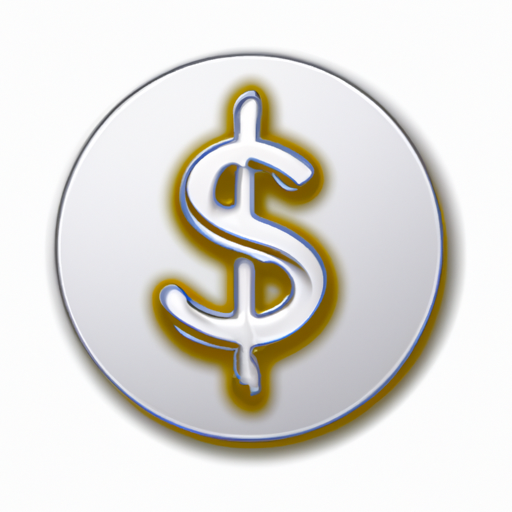
Understanding Your Credit Score Impact
When it comes to understanding the importance of credit scores and how they impact our lives, it’s easy to overlook the fact that our credit scores are more than just a number. Our credit scores provide lenders with an indication of how likely we are to repay our debt, and they also serve as a way to determine the interest rates we will pay on any loans or lines of credit we take out. As such, it’s important to understand the impact our credit scores have on our financial lives and how we can use them to our advantage.
One of the most important things you can do to improve your credit score and ensure that you’re getting the best possible interest rates on any loans or lines of credit is to pay off your debt. Paying off debt is one of the most effective ways to improve your credit score because it shows lenders that you’re a responsible borrower and have a strong track record of making payments on time. When you pay off your debt, make sure to make payments on each of your accounts on time every month. This will help to ensure that your credit score is as high as it can be.
In addition to paying off debt, building your credit is also an important factor when it comes to improving your credit score. Building your credit involves making regular payments on your credit cards or other loans, and keeping your credit utilization ratio low. Credit utilization is the ratio of total debt to total credit, and it’s important to keep this ratio low in order to demonstrate to lenders that you are a responsible borrower.
Finally, it’s important to remember that your credit score is only one factor in determining the interest rates you’ll be offered on a loan. Other factors such as your income level, employment history, and other financial obligations will all play a role in how much interest you’ll be offered. So, it’s important to take a holistic approach to managing your credit and debt in order to ensure that you’re getting the best possible interest rates on any loans or lines of credit you take out.
By understanding your credit score and taking steps to improve it, you can ensure that you’re always getting the best possible interest rates and terms on any loans or lines of credit you take out. Paying off debt and building your credit is a great way to demonstrate to lenders that you’re a responsible borrower and can be trusted to make payments on time. In the long run, this will not only help you save money on interest rates, but also pave the way for a more secure financial future.
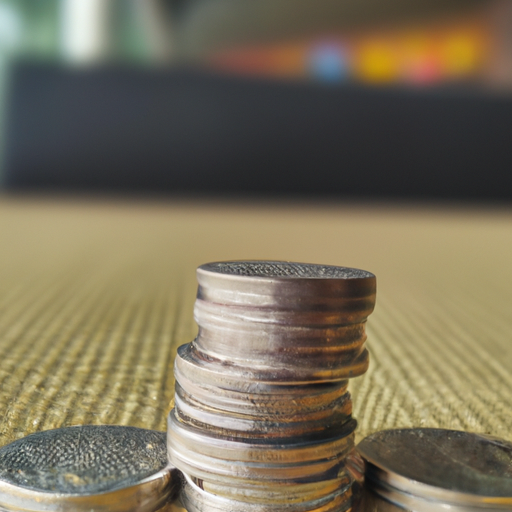
How to Avoid Racking Up More Debt
Paying off debt and building your credit score is one of the most important financial steps you can take. Not only does it give you a sense of financial security and freedom, but it can also help you qualify for better loan terms and reduce the amount of interest you pay on your debt. But if you’re trying to pay off your debt, it’s just as important to avoid racking up more debt.
The first step to avoiding more debt is to create a budget. Take a look at your income and expenses and decide how much you can realistically set aside each month to pay off your debt. Once you’ve set up a budget, stick to it! This can be difficult to do, especially if you’re used to spending money freely. But remember, it’s for your own benefit and it will help you reach your financial goals.
Another way to avoid more debt is to stop using your credit cards. If you’re trying to pay off debt, the last thing you want to do is add to it by using your credit cards. Instead, use cash or a debit card for your everyday purchases, and keep your credit cards tucked away safely. This way, you won’t be tempted to use them and add to your debt.
You should also avoid taking out loans or using other forms of credit unless it’s absolutely necessary. Before you take out a loan, ask yourself if you really need it or if there’s another way you can get the money you need. If you do decide to take out a loan, make sure you read the fine print and understand all the terms and conditions.
Finally, make sure you stay on top of your debt. Monitor your spending and stay current on your payments. If you’re having trouble making a payment, contact your creditors and work out a payment plan. This will help you avoid late fees and more debt.
Paying off debt and building your credit can be a difficult process, but it’s an important one that can help you achieve financial freedom. By avoiding more debt and staying on top of your payments, you’ll be on your way to a brighter financial future.
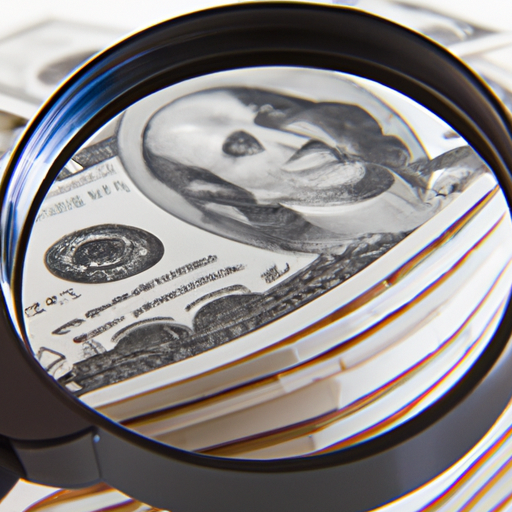
The Difference Between Good and Bad Debt
It’s important to understand the difference between good and bad debt when it comes to paying off debt and building your credit. Good debt can actually help you improve your financial situation by providing you with the opportunity to build a good credit score. Good debt includes things like mortgages, student loans, and car loans. These loans can help you build wealth, as long as you make timely payments and repay the debt in full.
On the other hand, bad debt can actually be quite detrimental to your financial future. Bad debt includes things like payday loans, credit cards with high interest rates, and other similar forms of borrowing. Paying off debt that falls into the bad debt category is a priority, since it can cause your credit score to suffer if left unpaid.
Paying off any type of debt is beneficial to your credit score, but paying off good debt is especially beneficial. Good debt can help you build a solid credit score, since it is generally easier to repay and has lower interest rates than bad debt. Paying off good debt is also a great way to build a financial foundation, since you can use the money saved from repaying the debt to invest or save for retirement.
Paying off bad debt, on the other hand, is just as important when it comes to building your credit. Paying off bad debt can help you avoid high interest rates and other negative consequences, such as bankruptcy. When you pay off bad debt, it is important to make sure that you are creating a budget and sticking to it to avoid taking on more bad debt in the future.
Another advantage to paying off debt and building your credit is that it can help you qualify for better interest rates when you need to borrow money in the future. Good credit scores can open the door to lower interest rates, which can save you a lot of money in the long run. Additionally, having a good credit score can open the door to new opportunities, such as buying a home or a car.
In conclusion, paying off debt and building your credit can be incredibly beneficial in the long run. Good debt can help you build a solid financial foundation, while bad debt can lead to high interest rates and other negative consequences. Paying off debt and building your credit can help you qualify for better interest rates and can open the door to new opportunities. No matter what type of debt you are dealing with, it is important to make sure that you are creating a budget and sticking to it in order to get out of debt and improve your financial future.
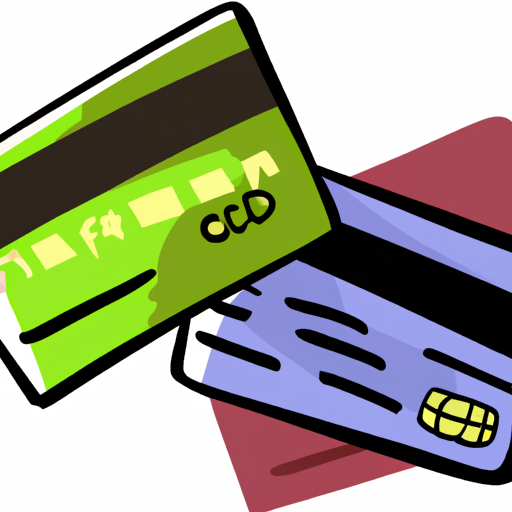
The Pros and Cons of Credit Cards
Credit cards have been around for many years and are a popular way to pay for goods and services. Despite this, there are both pros and cons to using credit cards. On the plus side, credit cards can help you build your credit score since paying on time and in full are usually reported to the credit bureaus, which can help you secure better rates and terms on future loans and financial products. Additionally, credit cards can offer cash back rewards and other benefits, such as travel miles and points to be redeemed for various items.
On the other hand, credit cards can also be a source of financial stress if not used responsibly. When you don’t pay on time and in full, you’ll be hit with hefty interest charges, which can quickly add up. Furthermore, if you rely too much on your credit cards, you can quickly fall into a cycle of debt, which can be difficult to get out of.
There are some solutions to help minimize the risk of getting into debt with credit cards. First, be sure to always pay your balance in full each month. If you can’t do this, then make sure to at least pay the minimum due, as this will prevent late fees and other penalties. Additionally, it’s important to only use credit cards when necessary, such as in cases of emergency. This will help you keep your spending in check and avoid getting into debt.
Finally, paying off any existing debt is a great way to build your credit and improve your financial situation. Paying off debt can help you improve your credit score and also free up more money to put towards other financial goals. It’s important to remember that paying off debt doesn’t happen overnight, so you’ll need to be patient and consistent with your payments in order to see results.
Overall, credit cards can be a useful tool when used responsibly. Knowing the pros and cons of credit cards can help you make an informed decision about whether or not to use them. Paying off debt and building your credit can be beneficial in the long run, so it’s important to be mindful of how you use your credit cards. With a bit of discipline and dedication, you can use credit cards to your advantage and improve your financial situation.


